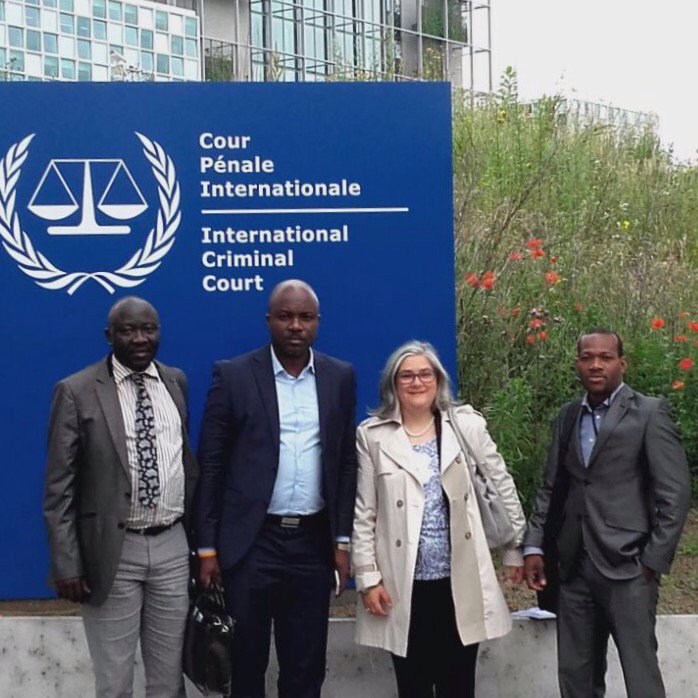 NCICC Blog
NCICC Blog
Paper Presentation by Olympia Bekou of the Human Rights…
Originally Published on Saturday, 19 July 2014

General Introduction
- The 2012 Crimes against Humanity, War Crimes, Genocide and Related Offences Bill is a comprehensive piece of implementing legislation. It covers both crimes and cooperation and, as such, seeks to cover all parts of the Statute for the International Criminal Court.
- The Bill is modelled heavily on the 2011 Commonwealth Model Law, an advisory document produced by the Commonwealth Secretariat, to facilitate implementation of the Rome Statute into national law.
- The Model Law, now in in its second edition – which takes into account the experience since the coming into force of the Statute – is intended to be advisory and used as a guide.
- The way in which the Bill deals with the following issues will now be addressed in turn: a. core crimes, b. jurisdiction, c. modes of liability and defences, d. offences against the administration of justice, and e. the ICC cooperation regime.
- Crimes(Part II – Sections 4, 5, 6)
- The Bill thoroughly incorporates the three core crimes under the Rome Statute: namely, the crime of genocide, crimes against humanity, and war crimes.
- The fourth core crime, the crime of aggression, which was adopted at the Kampala Review Conference, is not yet part of the ICC Statute, as the amendment requires 30 States to ratify it. The earliest the ICC could exercise jurisdiction over aggression is 2017. It is therefore understandable that the crime of aggression does not feature in the Bill.
- However, Nigeria is encouraged to ratify the Kampala aggression amendments, following which it must be prepared to discuss its position on aggression and determine whether such a crime would eventually need to be incorporated into its national law when the ICC is able to exercise jurisdiction over the crime.
- In incorporating the core crimes, the Bill is modelled closely on the wording of the Rome Statute and, where necessary in order to provide further detail, the Elements of Crimes. For example, use of the Elements of Crimes to better define the crimes against humanity of – among others – apartheid, extermination, and enslavement – is to be commended.
- Moreover, the Bill does not merely reproduce the wording of the Statute and Elements of Crimes. For example, by noting that the crime against humanity of enslavement applies to “in particular women and children” – is indicative of the adaptation of the crime to fit the Nigerian context taking into account the current challenges faced by Nigeria.
- Consequently, the 2012 Bill does not have any significant omissions as regards the implementation of the core crimes into Nigerian national law. In contrast, it thoroughly incorporates each of the crimes under the Rome Statute, but for the crime of aggression.
- Jurisdiction(Part IV – Sections 21, 22, 23)
- When discussing jurisdiction, issues of temporal jurisdiction need to be considered. Of course, in order to protect the rights of the accused, the nullum crimen nulla poena praeviaprinciple needs to be taken into consideration.
- Section 21 of the Bill stipulates that applicability of this Act is prospective from the day it will come into force. A number of States have in their domestic legislation allowed for retrospective jurisdiction, to the day that particular state joined the Statute, or to the 1stof July 2002, when the ICC came into existence.
- With regard to jurisdiction allocated to the national courts, The Nigerian Bill provides for universal jurisdiction for each of the core crimes. Indeed, Sections 4(1), 5(1), and 6(1) of the Bill begin similarly: “A person who, in Nigeria or elsewhere […]”.
- The ICC has been criticised on the basis that it was not granted universal jurisdiction, that is, namely, jurisdiction over an international crime notwithstanding any other recognised jurisdictional link to a State party to the Rome Statute than perhaps presence (or custody). This is not necessarily a bad thing. However, when it comes to the domestic exercise of jurisdiction, as State needs to consider which jurisdictional principles apply.
- Part IV of the Bill allow for the exercise of universal jurisdiction by Nigeria. This goes beyond the traditional grounds for jurisdiction, such as territoriality or nationality and is wider than the Statute. The provision of universal jurisdiction at the national level, when exercised, ensures that there are no safe havens for serious international criminals.
- In sum, therefore, the jurisdictional regime in the Nigerian Bill is universal and thorough. Similar to the provisions on the core crimes, there are no significant omissions.